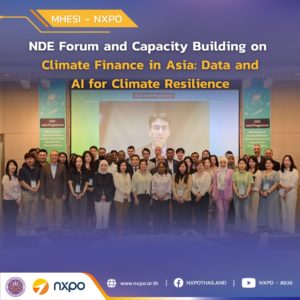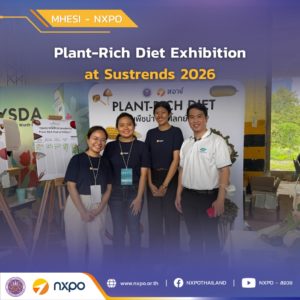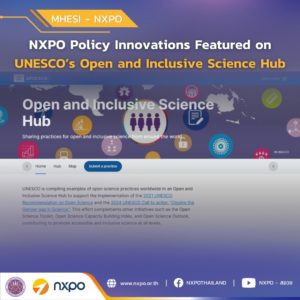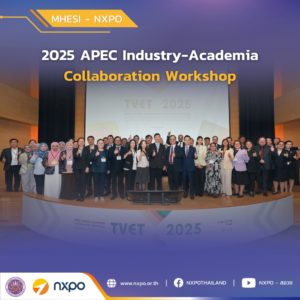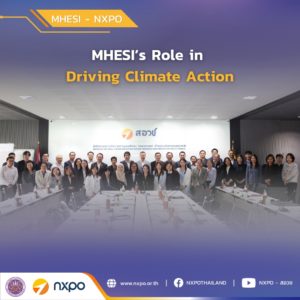NXPO President Dr. Kitipong Promwong recently discussed the importance of Bio-Circular-Green Economy (BCG) as it has been placed on the national agenda. BCG is the new economic development for inclusiveness and sustainable growth by turning Thailand’s comparative advantage in biological and cultural diversity to competitive advantage with technology and innovation.

For years, Thailand has remained in the middle-income trap, with USD 8,000 per capita income. To become a high-income country, this number needs to exceed USD 12,500 and thus BCG has been introduced to create new growth engines to invigorate the economy and create fair wealth distribution.
BCG consists of
- Bioeconomy involves the production of renewable biological resources and the conversion of these resources into value added products
- Circular economy aims at reusing and recycling materials to maximize the value of limited resources.
- Green economy determines to keep economy, society and the environment in balance, leading to sustainable development.
The BCG strategy is to build capacities of players in the value creation pyramid, the top of the pyramid being the small number of players utilizing technology to produce high-value goods and services, and the bottom involving a large number of players mainly in the agricultural sector. To enhance the capability, advanced technology will be introduced to the top; whereas proper technologies – mainly in food and agriculture – will be employed to help farmers improve their productivity and upgrade quality aiming for premium markets.
BCG economy model is expected to ease the impact of COVID-19 and bring about positive contribution in the following aspects:
- Food security. As a well-known food producer, Thailand produces a surplus of carbohydrate foods such as rice and sugar but not enough protein. BCG economy model will facilitate the balance in food production and strengthen the nation’s food security.
- Energy. Thailand is heavily dependent on natural gas for power generation. 60% of its electrical power comes from natural gas and the imports of natural gas are expected to keep growing. BCG will increase the proportion of renewable energy consumption from 16.5% in 2019 to 20%
- Health. Thailand imports large amount of healthcare products, especially medicines and medical supplies. A number of drug and vaccine development projects are in progress including psoriasis medicine, erythropoietin and cancer drug. The success of these projects will result in the import reduction.
- Sustainability. BCG model will reduce resource consumption and pollutions such as PM2.5, waste and wastewater, as well as support the conservation and rehabilitation of wildlife and ecosystem.
- Tourism. By balancing economic activities and environmental objective, new and sustainable tourism will be promoted.
At present, BCG have a combined economic value of 3.4 trillion THB. It is expected that BCG economy model can raise this number to 4.4 trillion THB in five years, whereas employment will increase from 16.5 million to 20 million. In addition, wealth distribution will focus on the poor and the middle class to create inclusiveness and sustainability.

